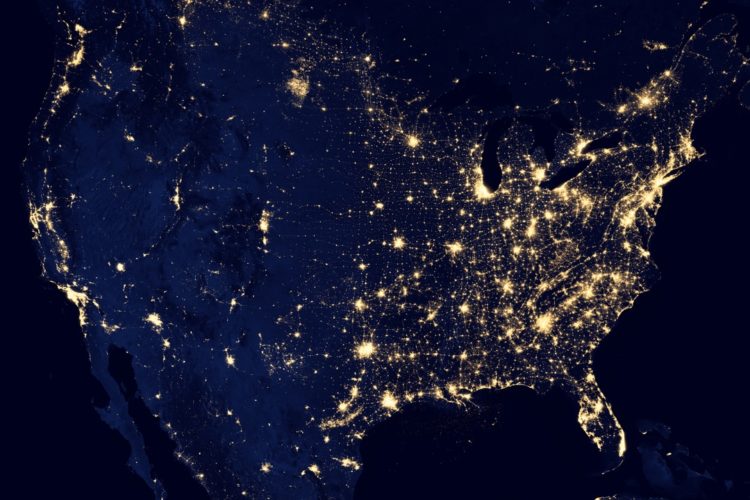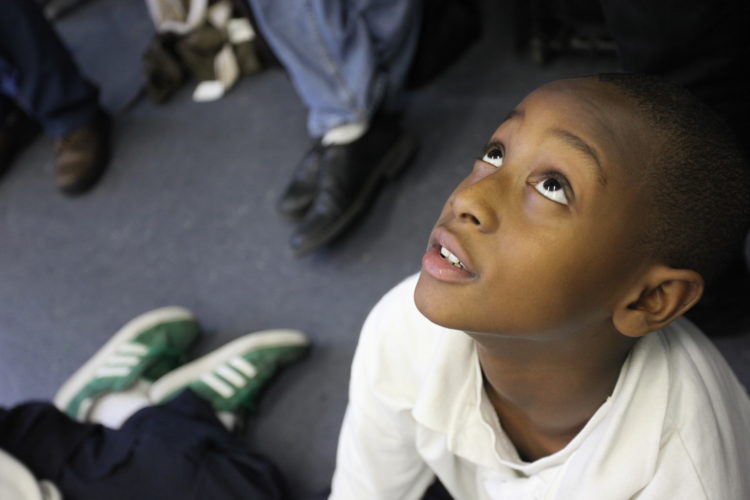Adolescents are developmentally capable of analyzing their socio-political environments (schools) and identifying how racialized, classed, and gendered policies and practices adversely affect them based on their identities. Finding a place for marginalized youth of color to voice their concerns and identify strategies to reduce inequitable practices in schools can be crucial for their sense of empowerment and civic engagement.
Although schools may serve as a site for youth to build positive lasting relationships, develop a sense of identity, and explore their interests, they also reproduce inequitable systems of power. Schools often fail to adequately provide culturally responsive curricula or socio-emotionally safe environments necessary for youth to thrive. Many schools impose policies that appear to be neutral, but have disproportionately adverse implications on youth from historically marginalized groups. These policies are often created without youth voices or even the consideration of how the policies might affect young people’s educational experiences.
Youth-led, out-of-school time programs such as youth organizing (YO) can provide safe, alternative spaces to voice concerns about unjust schooling. Youth organizing is a form of civic engagement that fosters critical consciousness and developmental competencies, or skills that promote active and engaged citizenship, that engage both connected and disconnected youth, and that promote college and career readiness. Currently, our research team is exploring how YO fosters critical consciousness and developmental competencies, school engagement, and collective social change, and its potential to reduce school inequities. Here’s a look at what we’ve been learning:
Youth voices matter in YO
YO programs are spaces where youth can share their common experiences and trust that their voices will be heard. Student participants have reported that YO is the only place where their voices matter, and that teachers and school administration often do not take interest in students’ experiences of policies. In YO, though, young people are able to share testimonies of unjust practices in their schools. Knowing that their peers and caring adult allies will provide emotional support empowers them to voice their perspectives and to organize strategic civic action to address the inequity they experience. In addition, youth have expressed that YO offers them a fun and safe place of belonging, where supportive adults help them practice self-care and heal from racialized and gendered trauma.
YO fosters skills for school engagement and career readiness
In YO contexts, youth develop skills that foster school engagement and career readiness. They engage in work that has authentic personal value and challenges unfair schooling practices. In addition, YO engages young people in a formal process of identifying topics of common concern, researching root causes and possible solutions, and taking action to hold decision makers accountable for implementing solutions. As young people practice negotiating demands of schools, they develop critical consciousness and developmental competencies, or the confidence and skills necessary for success in schools, college, and careers.
Critical consciousness involves two related components: critical reflection—the ability to analyze unjust social conditions; and critical action—the behaviors involved in addressing unjust social conditions (Freire, 2000). Developmental competencies are the non-cognitive, practical skills and positive beliefs about one’s self. Analysis of oppressive systems in schools can motivate youth to take on new competencies as they prepare for civic action. For example, several students told me that they learned how to facilitate meetings with school administration and staff and to deliver speeches to large audiences because of their commitment to reducing the number of police officers and increasing the number of counselors in their schools.
Furthermore, critical consciousness and developmental competencies are interrelated. As young people reflect upon and analyze the root causes of their marginalization, they practice strategies to work collectively and to act critically to improve their schools and communities. Simultaneously, young people develop the competencies necessary to work effectively with others (e.g., group decision making, self-management, and action planning). Young people’s critical actions iteratively inform their analyses of systems of power and their self-efficacy, as well as the strategies they use to enact change in the future.
In addition, developing critical consciousness can lead to greater school engagement among youth of color. While education beyond high school is increasingly crucial to social mobility and well-being, Black and Latino students generally experience weaker academic preparation, lower high school graduation rates, lower post-secondary enrollment rates, and lower rates of persistence than their White peers (Ross et al., 2012). YO may be especially fit to reduce gaps in educational outcomes among youth of color by helping youth pushed out of schools re-engage through civic action. For example, I spoke with one teen who was pushed out of their high school and later happened to connect with a YO group that helped them organize for positive change in their high school and pursue a post-secondary trade education. Indeed, critical consciousness and developmental competencies developed through YO participation may be key to keeping marginalized youth engaged with secondary and post-secondary educational opportunities.
Adult support: A key lever to reducing inequity in schools
YO can provide youth with the opportunities to work in close collaboration and mutual accountability with peers and adults. However, our interviews reveal that some adults are barriers to reducing inequities in schools. Students have shared that their YO work is most effective if school staff and administration, school district leaders, and government officials support their efforts. Without the alliance of adults in key positions (“gate keepers”), such as school district leaders, the organizing efforts of youth cannot advance. From my discussions with youth, the following questions come to mind:
- What would it look like for youth organizers and adult “gatekeepers” to partner, and for adult leaders to be accountable for advancing equity in schools?
- How could educators and “gatekeepers” be better equipped to support youth as they develop a critical analysis of racism, sexism, and classism?
These questions are invitations to scholars, educators, and youth-serving professionals to consider the integral role that adults play in helping youth successfully organize for educational equity.
Conclusion
Schools have the potential to be excellent places for youth to thrive, but for many youth of color, schools create barriers to educational success. We’ve learned from youth in our study that, although YO promotes positive youth development, creating equitable schools is not the sole responsibility of youth of color who choose to organize. Youth organizing efforts are opportunities for adults in key positions of leadership to hear, reflect on, and partner with youth to reduce inequity in schools for marginalized youth of color.
References:
Freire, P. (2000). Pedagogy of the oppressed (30th anniversary ed.). New York, NY: Continuum.
Ross, T., Grace, K., Rathbun, A., Kewal Ramani, A., Zhang, J., Kristapovich, P., & Manning, E. (2012). Higher education: Gaps in access and persistence study. Washington, DC: National Center for Education Statistics, U.S. Department of Education, Institute of Education Sciences.






